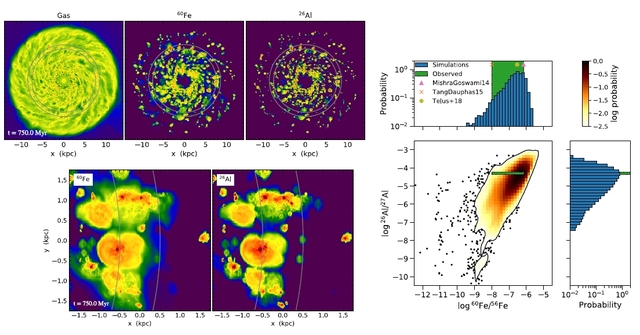ELSI Seminar
ELSI Colloquium
- Speaker
- Yusuke Fujimoto
- Date
- March 22, 2019
- Time
- 13:30 - 16:30
- Room
ELSI-1 102 Mishima Hall
Title:
Short-lived radioisotopes in meteorites from Galactic-scale correlated star formation. Abstract:
Abstract:
Meteoritic evidence shows that the Solar system at birth contained significant quantities of short-lived radioisotopes (SLRs) such as 60Fe and 26Al (with half-lives of 2.6 and 0.7 Myr, respectively) produced in supernova (SN) explosions and in the Wolf-Rayet winds that precede them. Proposed explanations for the high SLR abundance include formation of the Sun in an SN-triggered collapse or in a giant molecular cloud (GMC) that was massive enough to survive multiple SNe and confine their ejecta. However, the former scenario is possible only if the Sun is a rare outlier among stars, while the latter appears to be inconsistent with the observation that 26Al is distributed with a scale height significantly larger than GMCs. In this talk, we present a high-resolution chemohydrodynamical simulation of the entire Milky-Way Galaxy, including stochastic star formation, H II regions, SNe, and element injection, that allows us to measure for the distribution of 60Fe/56Fe and 26Al/
27Al ratios over all stars in the Galaxy. We show that the Solar system's abundance ratios are well within the normal range, but that SLRs originate neither from triggering nor from confinement in long-lived clouds as previously conjectured. Instead, we find that SLRs are abundant in newborn stars because star formation is correlated on galactic scales, so that ejecta preferentially enrich atomic gas that will subsequently be accreted onto existing GMCs or will form new ones. Thus, new generations of stars preferentially form in patches of the Galaxy contaminated by previous generations of stellar winds and SNe.












